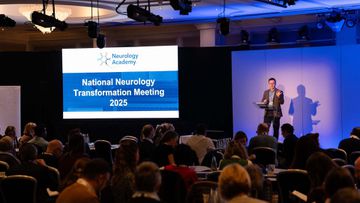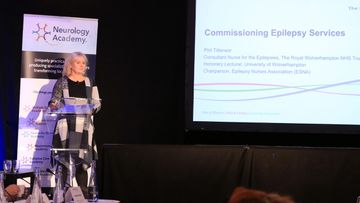Transforming neurology services: a practical way forward
Event reportsOn 27th May, 60 healthcare professionals spanning commissioning, management, clinical work and the voluntary sector gathered to hone their understanding of neurology commissioning. Find our conference overview here or read on for a better understanding of commissioning in neurology!
Clinical Director and CCIO of the Walton Centre, Dr Martin Wilson, highlighted the transformation agenda that is being taken forward following on from the GIRFT neurology specialty reportand delegates were delighted to hear a great deal of - as yet - unpublished information.
NHS England and NHS Improvement (NHSE/I) have set out their plans to delegate responsibility for a range of services to an Integrated Care System (ICS) level. This means that many services that are currently planned and commissioned at a national level (i.e. specialised) will now be planned and commissioned at a regional level. The Roadmap for integrating specialised services within Integrated Care Systems is part of the broader NHSE/I reform that will fundamentally change how many services for people affected by neurological conditions are commissioned (table 2).
Table 2: Service information as set out in the Roadmap for integrating specialised services within Integrated Care Systems
| Martin explained that neurology services will need to: |
|---|
| Define levels or ‘Tiers’ of neurology services – including specialised services but also ‘general neurology’ |
| Map these to both an appropriate delivery footprint, and commissioning framework |
| Deliver to agreed standards and pathways with providers accountable for their whole population the way these should be delivered is identified in: |
| - Optimum pathways (NNAG and CRG) |
| - GIRFT |
| - RightCare |
| Develop or optimise multi-disciplinary teams (MDT) across specialities or skillsets not always partnered across to improve timeliness, quality and parity of services. |
| Develop neurology triage systems with direct referral systems into MDT structures and specialist services. |
Martin shared that multi-disciplinary approaches at differing levels would be key to transforming neurology services, outlining MDT clinics, MDT meetings and regional MDT meetings, all of which have different functions. The Regional MDT meeting is new to the neurology space and will be used at tier 3 to address specific complex cases, unblocking systemic service inaccess or implementing wider policy implementation. Examples of a regional MDT meeting requirement include:
- Implementing policies for any NHS England drug / surgical intervention e.g. DMT use
- Access to neurogenetics or genomics services to support personalised care for refractory cases
- Access to unlicensed treatment where other interventions have failed
- Access to complex surgical interventional e.g. neurosurgery for epilepsy
Martin was clear that Regional MDTs will require specific organisation at regional level to provide governance for service provision and that vehicles to ensure this include appointing the first national clinical director for neurology, new governance models, a new neurology service specification, defined outcome measures and key performance indicators (KPIs) and partnership working across various organisations within and external to the NHS.
Some practical ways for managers and clinicians to think about the future of their service in the brave "new" world of ICSs etc #nnmm @TheNeuroAcademy pic.twitter.com/c4xGge1j93
— Georgina Carr FRSA (@GCarr_Neuro) May 27, 2022
Related articles
Meet with strategic and operational colleagues in neurology
Join us for the Neurology Manager Network Meeting which will enable senior managers and directors in neurology services to update their knowledge on current neurology service delivery.


